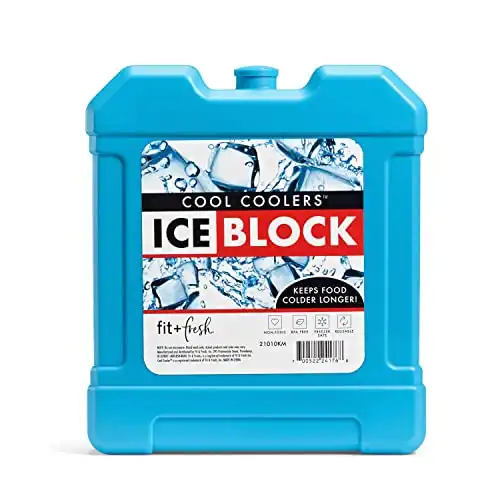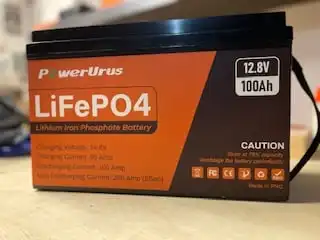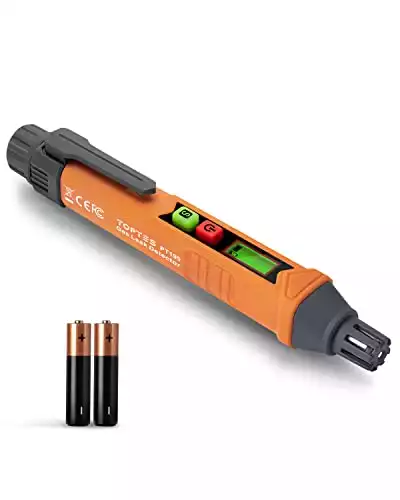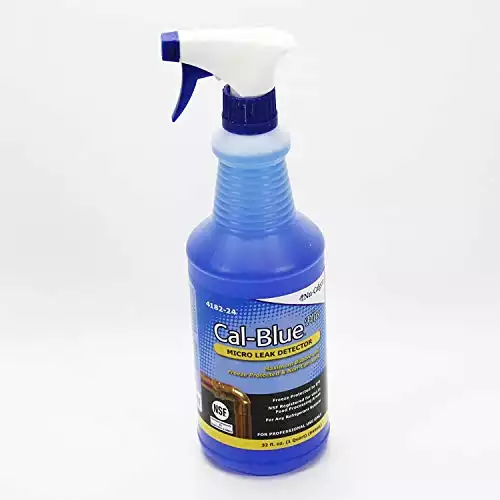Have you ever wondered if you could run your RV refrigerator while traveling? The short answer is yes, but it may not always be necessary or the best choice.
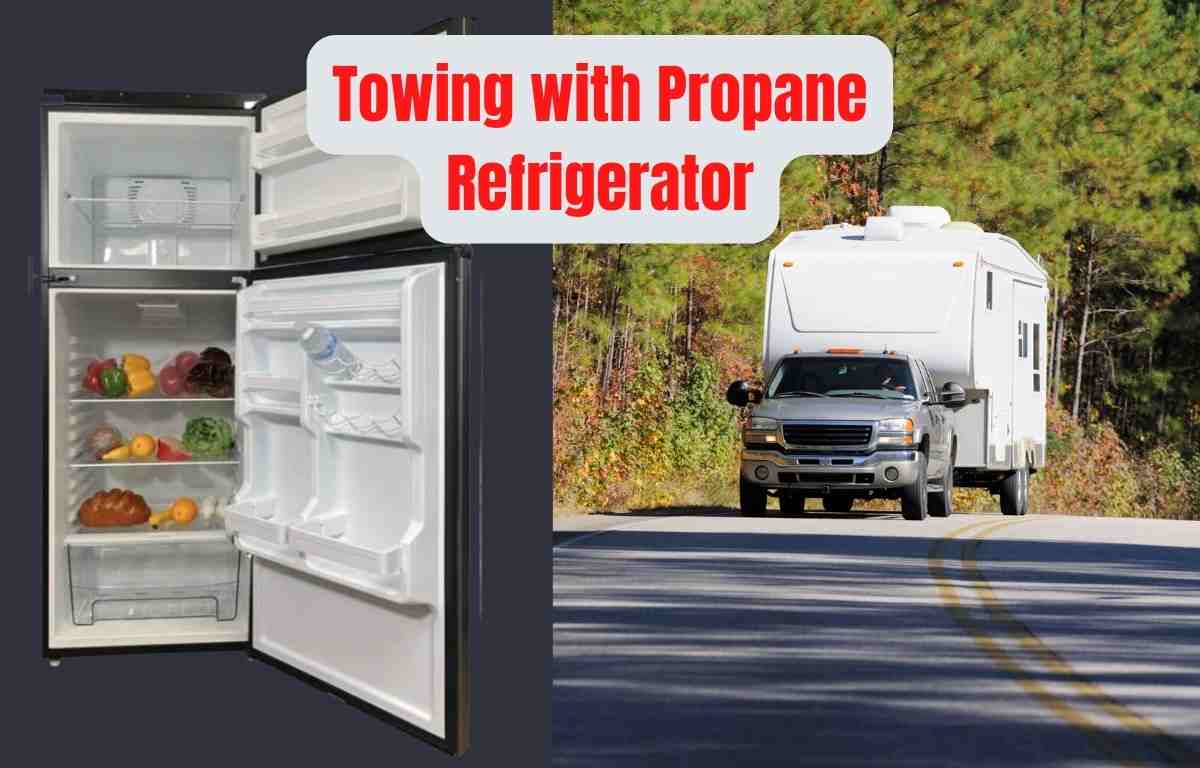
One of the great things about owning an RV is its versatility in operating it while connected to the electrical grid or while camping off the grid. Although RVs are typically equipped to use various energy sources, including traditional AC power, DC 12-volt battery power, and propane.
If you have a traditional RV refrigerator, you can likely cool it via electricity or propane. In either scenario, the refrigerator uses the same system to cool the refrigerator. This 2-way fridge is an absorption refrigerator. Without getting too deep into the science behind how it works, it will use an electric element or a propane flame to heat the gasses and liquids that travel throughout the inside refrigerator casing, creating a chemical reaction and evaporation, which pulls heat away from the inside and leaves cool air behind. This is different than a residential refrigerator, which likely has a compressor system.
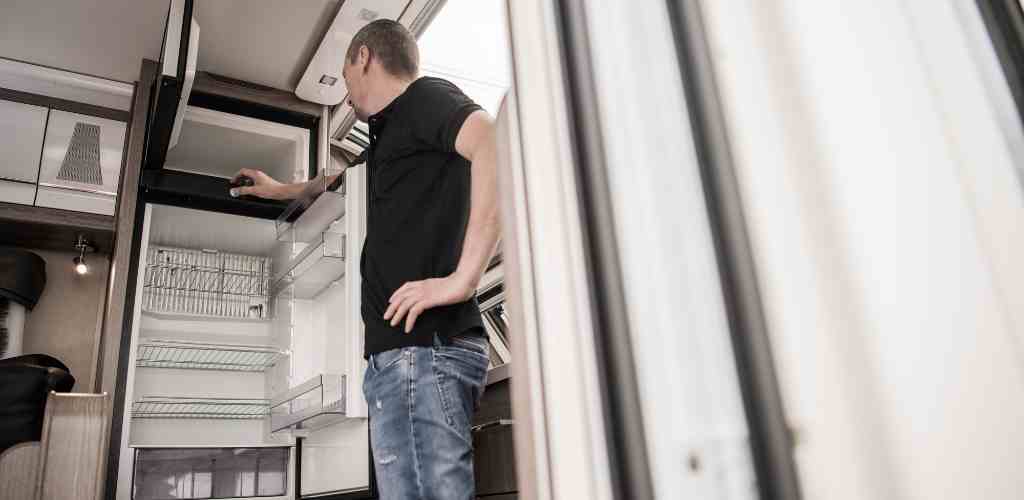
When using propane as the fuel source, a small flame will create the heat needed for the refrigerator to operate. RV absorption fridges are designed with a propane burner to accomplish this task, which, when maintained, works very well and is safe.
Whether you are stationary or traveling, the RV propane fridge will work the same way, and the propane will serve as fuel to allow your refrigerator to cool. I know it sounds strange to use heat to create cool air, but it’s an ingenious technology that’s been around for a long time.
Using your RV refrigerator while traveling
Why would you want to run your refrigerator while traveling?
There are a few reasons why an RV owner may want to turn on their RV refrigerator while traveling instead of waiting until they’re at the campsite. First, RV refrigerators take a long time to cool down. In fact, it can take nearly half a day to get the temperatures to an adequate temperature. If you have a long drive to the campsite, some people use this time to cool their refrigerator down, so it’s cool enough to store your food when they get to their destination.
Other RVers appreciate the convenience of turning on the refrigerator the night before a trip, loading it up with food, and arriving at the campsite with a cool refrigerator with the food they need for the camping trip.
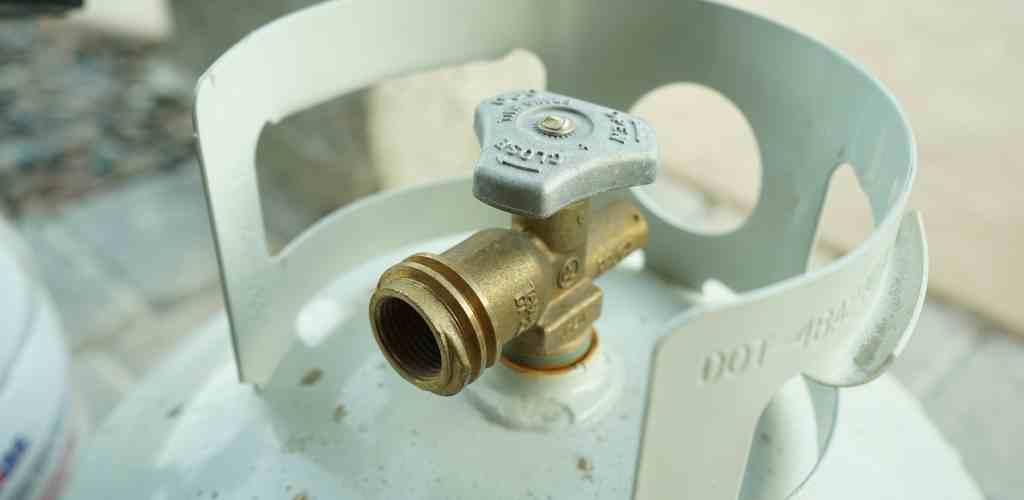
Finally, suppose campers traveling between campgrounds want to keep the refrigerator on and filled with their food when making the trip. In that case, it alleviates the hassle of removing the food from the refrigerator and freezer and placing it in a cooler during your trip.
Is it safe to travel on the road with the refrigerator operating on propane?
As with most things in life, there are risks that you have to consider. While the refrigerator should operate normally while traveling vs. stationary, the biggest risk you face is developing a propane leak. While it’s rare, it can and has happened. When traveling down the road in a moving vehicle, your RV is subjected to bumps, turns, vibrations, etc. These small movements can cause a propane line to shift and develop a small gas leak. This concern is also true for other propane RV appliances like a furnace or water heater.
If you have a leak, it takes a small spark to ignite the propane gas. However, this is a very rare scenario as RVs are traveling millions of miles throughout the United States each year without this happening. However, propane leaks can be a concern for RVers, and towing or driving your RV on the open road is likely the number one cause of how they form.
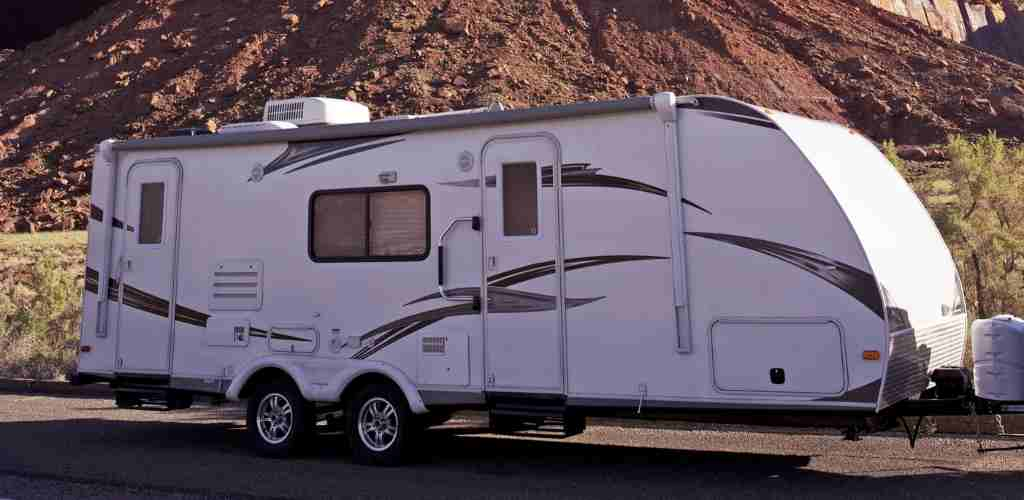
When you’re inside your RV, you’re more likely to notice a leak by smelling it or hearing an alarm. While driving, a leak can go unnoticed and create a dangerous situation. Most people will notice a leak when they get to a campsite and turn on the propane. This won’t be possible if you’re in the tow vehicle pulling your RV behind you.
Is there an alternative to traveling with your propane refrigerator running?
The great thing about modern RV refrigerators is that they’re very efficient. Dometic, one of the largest manufacturers of RV refrigerators, says that their units are designed to keep food cold for up to eight hours. This is great news for RV travelers. Very rarely do we have travel days beyond eight hours.
This means that if you cool your RV refrigerator down before traveling, there shouldn’t be much of a need to operate it while on the road. However, if you want to improve the refrigerator’s efficiency, a great tip is to add some frozen water bottles or an ice pack inside the refrigerator on your travel days. The good thing is that this will work even if you have a long trip in most situations, regardless of what type of RV refrigerator you have, including a residential fridge. This tip is also a good thing to remember during a power outage.
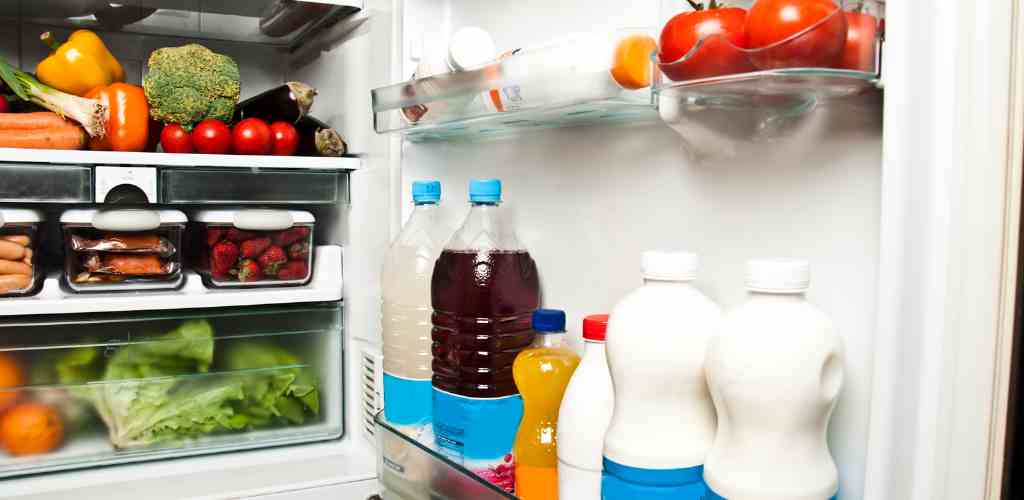
Additionally, a stocked refrigerator that is already cold with being more effective at maintaining the temperature inside the refrigerator and freezer. A better option is to turn on your refrigerator the day before a trip, load it up with food, and then turn it off before you travel. Then, unless you’re driving through the desert for most of the day, the food in your refrigerator and freezer will be perfectly fine (even the ice cream). You can easily connect your RV to shore power at home with a simple adapter (30A or 50 A to 110-volt plug). Even if you can’t plug in your RV, you can use your battery since an RV propane refrigerator doesn’t require much power to operate.
These large ice packs are perfect for use in your RV refrigerator while traveling, placing in a cooler, or having on hand for power outages. They last very long and are guaranteed to keep your food cold when needed.
If you have long travel days and are concerned about the food staying cold, you can turn on your refrigerator when you stop for lunch or at a rest area. You can then turn it back off before you begin driving again.
What safety steps should you take when traveling with the propane on?
If you still want to travel with the propane refrigerator or other propane appliance running while traveling, there are some key safety tips to follow. First, make sure it’s operating as it should before you leave. Turn the appliances on at least a few hours before traveling to ensure there aren’t any leaks or issues present before you start driving. Finally, regularly checking your propane connections with soap and water is a good idea.
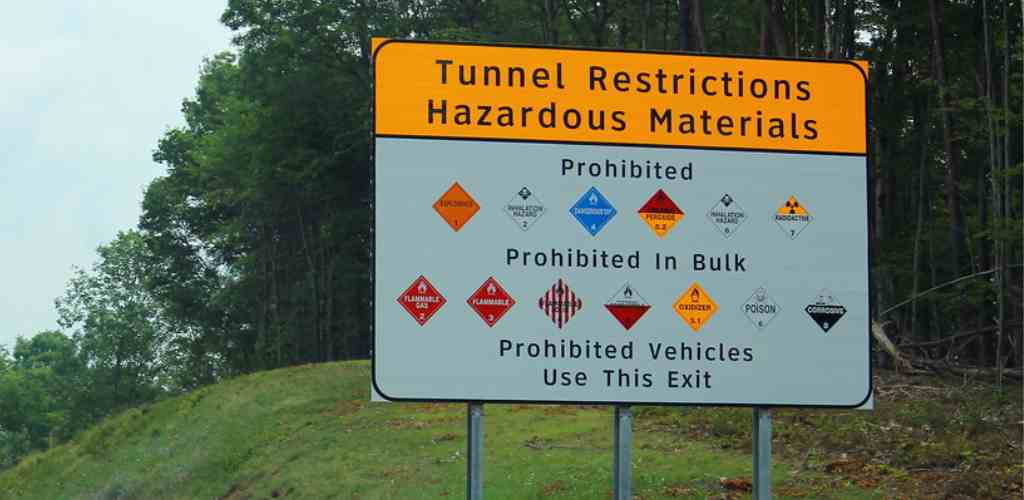
Next, you should turn your propane tanks off when stopping at a gas station or before entering a tunnel. You don’t want an open flame next to gas pumps. Also, traveling through tunnels with the propane tank turned on may be illegal. Whenever you stop, give the tanks and propane appliances a quick inspection to ensure they’re functioning and don’t develop any leaks. Yes, it can be a pain, but it’s always important to be extra cautious.
What about RVs that have a generator? Can I use my electric refrigerator?
In some instances, this is a good alternative. However, you want to ensure your generator can run everything in your RV while driving. Additionally, you want to keep your fuel tank full since most RV generators will stop working when the tank drops below a quarter tank, a safety feature to prevent you from getting stranded. Finally, generators are more likely found in a motorized RV and not a towable like a travel trailer. Typically, a class A RV will have a generator. However, you can’t use a portable generator for this purpose.
Does the RV refrigerator need any electricity when operating on propane?
While the primary fuel used to operate your RV refrigerator, when not using electricity, is propane, you will still need to have a good DC power source (RV batteries) to power the refrigerator computer and spark mechanism. It shouldn’t be a concern as long as your RV battery is functioning as it should since the amperage draw will be very low when using propane. However, be aware that you need DC power and lp gas for the refrigerator to work.
Conclusion
The answer to the question of if your RV refrigerator can operate on propane while driving is yes, it can. However, if you should or need to do this is not always so clear. Operating your RV refrigerator with propane when traveling carries certain risks that may not be necessary. In most situations, you can adequately travel with a cold refrigerator turned off without worrying about the food warming up. This step may take additional planning, such as turning it on the night before a trip, but it’s a minor inconvenience to alleviate any safety concerns with the propane system.
|
|
|
|
While the right answer isn’t always so clear, the last thing any RVer wants to do is create an unnecessary safety risk. Luckily for most people, running a propane refrigerator while driving is often necessary, as long as you can precool the refrigerator before you travel, regardless of what type of refrigerator you have. However, if you choose to travel with a refrigerator running, ensure you check your systems before, during, and after your trip.
Additionally, if you’re new to RVing, it’s a good idea to get familiar with your propane system and learn how to practice propane safety. This step involves learning how to turn your propane on and off, test for leaks, and learn how your propane alarm works. Propane accidents are rare, but they can happen. They usually occur in situations where the system is not maintained properly.

